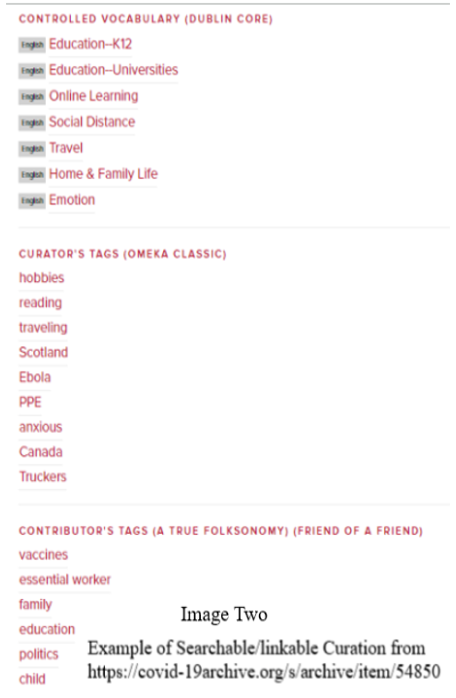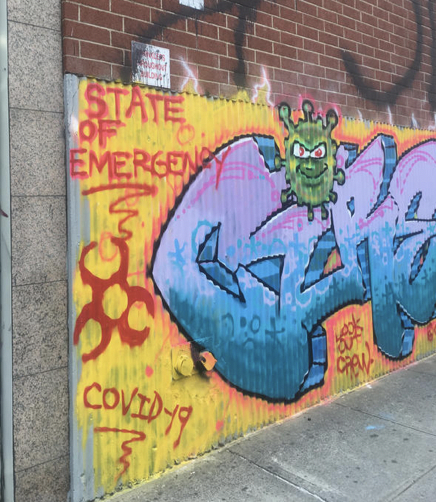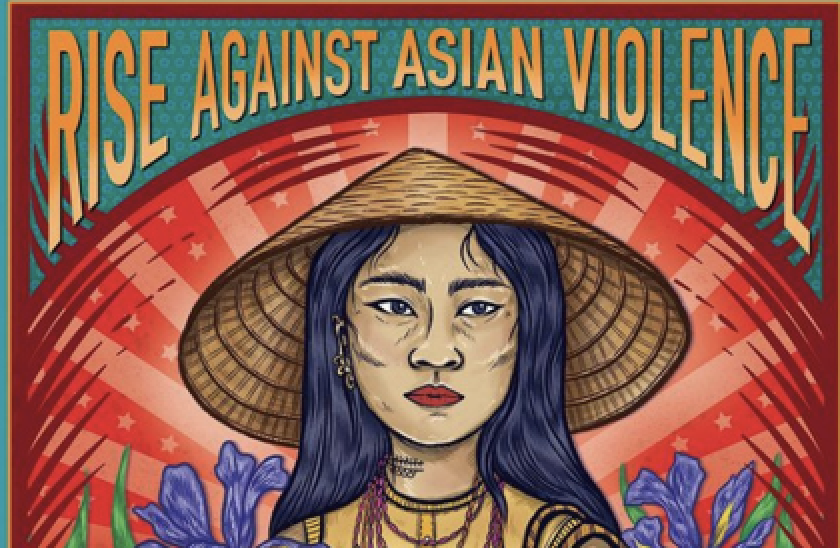Blog post by Robin Keagle
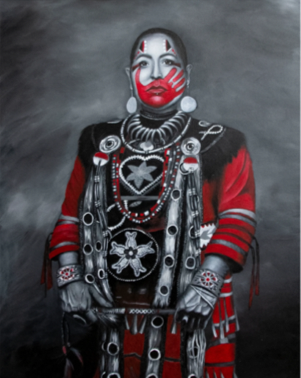
Genocide, stolen lands, and broken promises. Indigenous Peoples have a long history of being silenced. Their voices are muted and are often missing from the archives. As a graduate intern with the Journal of the Plague Year (JOTPY) archive, I realized that COVID-19 experiences of Indigenous Peoples, although not wholly muted, were not adequately represented. The archive contains many media stories about their pandemic experiences, but Indigenous Peoples do not tell these stories. To combat that silence, I created the new collection, Indigenous Point of View (IndigenousPOV). While searching for their perspectives to add to JOTPY, I discovered a thread of continuity amongst their websites and blog posts, their stories of resilience. Although they were silenced by colonizers, silenced by archives, and silenced by the United States government, they remain here fighting for their voices to be heard. Here I share two stories that illustrate their resilience during the COVID-19 pandemic.
Refusal to Stop Fighting
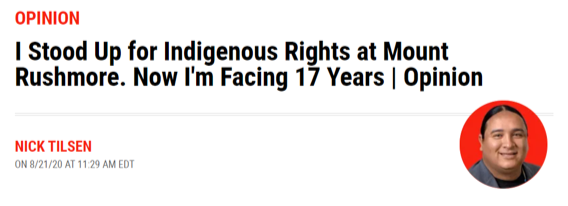
In July of 2020, an Oglala Lakota Nation member, Nick Tilsen, was arrested for protesting at a Mount Rushmore Trump rally. The protestors claimed that the administration did not adhere to a treaty requiring permission to hold the rally on Lakota land. Also, they did not follow proper social distancing protocol, including wearing masks. Tilsen claimed that once again, their existence was threatened by COVID-19 exposure. In response, Tilsen and other tribal members were pepper-sprayed by officers in full riot gear and threatened with 17 years in prison. Tilsen reminds his readers that this is an old fight stretching back centuries but one they continue to battle today. He uses his platform as president and CEO of the NDN Collective to remind our country the Lakota and other Native Nations have sovereignty over their lands. Tilsen reminds us that despite the atrocities Indigenous Peoples have experienced for generations, they will never stop fighting for what is theirs, their sacred land. [i]
A New Spin on an Old Tradition
The continued battle to reclaim land sovereignty is not the only issue Indigenous Peoples face during the pandemic. Social distancing is forcing them to redefine how they honor their sacred
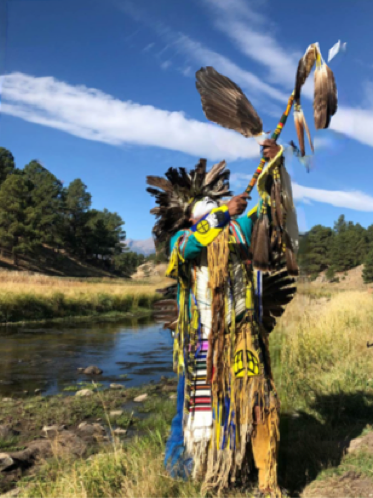
traditions. Stephanie Hebert is First Nations Mi’kmaq from Nova Scotia, Canada, and currently lives in Dallas, Texas. She explains that powwows are sacred traditions that connect their peoples physically and spiritually and describes the difficulties of holding them during the pandemic. Hebert shares how a friend invited her to help moderate a Facebook group called Social Distance Powwow, allowing tribal members to virtually powwow together. In a short amount of time, the group to over 100,000 members. Indigenous Peoples shared stories of how this group allowed them to virtually powwow with tribal elders, family members, and friends. It connected them with family members in hospitals and gave the disabled opportunities to participate. Unfortunately, Facebook claimed that the group influenced too many people on the social media platform, so the social media platform changed its algorithm to make it more difficult for users to find the page. However, they devised a way to bypass the algorithm in order to facilitate a broader reach. Once again, their resilience allowed them to overcome obstacles that otherwise would have lessened their ability to connect with more Indigenous Peoples globally. [ii] As of today, Social distance Powwow has approximately 240,600 members. [iii]
The Journal of the Plague Year archive invites Indigenous Peoples worldwide to submit their stories to its archive. Your voices will be preserved so future generations will learn of Indigenous resilience and resistance.
[i] Tilsen, Nick, “I Stood Up for Indigenous Rights at Mount Rushmore. Now I’m Facing 17 Years,” Newsweek, August 21, 2021. Accessed March 29, 2021. https://www.newsweek.com/i-stood-indigenous-rights-mount-rushmore-now-im-facing-17-years-opinion-1526763.
[ii] Liza Black, “Stephanie Herbert Oral History 2020/04/22” transcript of an oral history conducted in 2020 by Liza Black, Journal of the Plague Year archive, Arizona State University. 34:30 timestamp https://covid19archive.org/admin/media/26268
[iii] Social Distance Powwow Facebook page, Facebook, https://www.facebook.com/groups/socialdistancepowwow

